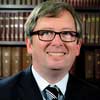Embracing a Code of Professional Ethics
PRESIDENT'S MESSAGE
The story of our time is one of a loss of trust in expertise and institutions. Food scientists are perhaps more familiar with this trend than others because, for many years, our work and even our motivations have been questioned in the popular culture. Fewerpeople are engaged in the food production process and thus don’t appreciate the expertise farmers and food scientists apply every day to solve practical problems and ensure the integrity of the food supply. IFT, on the other hand,envisions a “world where science and innovation are universally accepted as essential to a safe, nutritious, and sustainable food supply for everyone.” To achieve our vision, we work to elevate both the status and the standards of the food science profession.
There are other occupations that require the expertise gained from extensive training to perform vital tasks in society that already enjoy greater trust and status. An accountant is trusted to report financial data honestly and within certain norms; a lawyer is expected to respect confidences and act in the client’s interest; a doctor is required to help in an emergency. These are jobs that carry obligations beyond those of ordinary citizens and beyond the typical responsibilities of employment and that reinforce their special obligations with strict professional codes of conduct. That doesn’t mean other careers—baristas, bakers, and bankers—are somehow untrustworthy, irresponsible, or inferior, but rather this additional professional responsibility is a recognition of a special value and importance. I believe food science is so important to the modern world that food scientists should aspire to this status.
Because they are part of the professional society for food scientists, IFT members appreciate the essential role the responsible application of science plays in the food system, and we want to elevate the status of our profession to better meet this task. Strengthening and modernizing our professional ethical standards is a step in that direction, and I am very grateful to the taskforce who, under the leadership of Professor Paul Singh, carefully reviewed the existing IFT Code of Professional Conduct and provided the extensive revision recently adopted by the board of directors. You can review the revised code by visiting ift.org/about-us/governance and clicking on “Code of Professional Conduct.”
Food scientists play many roles in society and in organizations and owe responsibility to different groups of people. For example, in our research efforts the code calls us to “maintain the highest degree of integrity” and cautions us to cite the work of others appropriately, to avoid bias and conflicts of interest, and to value skepticism. In our dealings with employers and clients, the code requires us to “serve as trusted and informed representatives” and then encourages us to recognize our responsibility to the people who rely on our technical advice. The code also recognizes the importance of food science to the public good and encourages us to provide clear and accurate information to inform citizens’ food choices and to consider the social and environmental consequences of our actions.
The code isn’t a strict rulebook. As an individual member, the best way to use it is as an aid to help you think about the issues in play in your work decisions. Some of these issues may seem obvious while others never apply to you. In many cases the circumstances you find yourself in will be unclear or bring multiple issues into conflict. Often there are no easy answers when faced with unique, practical decisions. However, even simply accepting that there is a higher standard we hold ourselves to because we are food scientists is a powerful step. In committing to this code as part of your membership of IFT you are aspiring to a higher role for food scientists in society and consequently a better food system. I should note that while the code encourages members to support their professional society, it stresses that it does not exclude “constructive criticism”! I would love to hear your thoughts about how IFT can do more to support you as a food scientist and to advance food science as a profession.
While you are thinking about your role in the future of our profession, this is the time of the year to make your voice heard in IFT. Log on to ift.org/elections to vote for president-elect, members of the board of directors, and the Nominations & Elections Committee. Also on the ballot is a recommendation from the board of directors for a change in IFT’s membership model. You can read more about the candidates and the membership model on our website, but ultimately the future of your profession and your professional society will be driven by your choices.
 John Coupland, PhD, CFS
John Coupland, PhD, CFS
IFT President, 2016–2017
Professor of Food Science, Pennsylvania State University, University Park, Pa.
[email protected]
@JohnNCoupland


